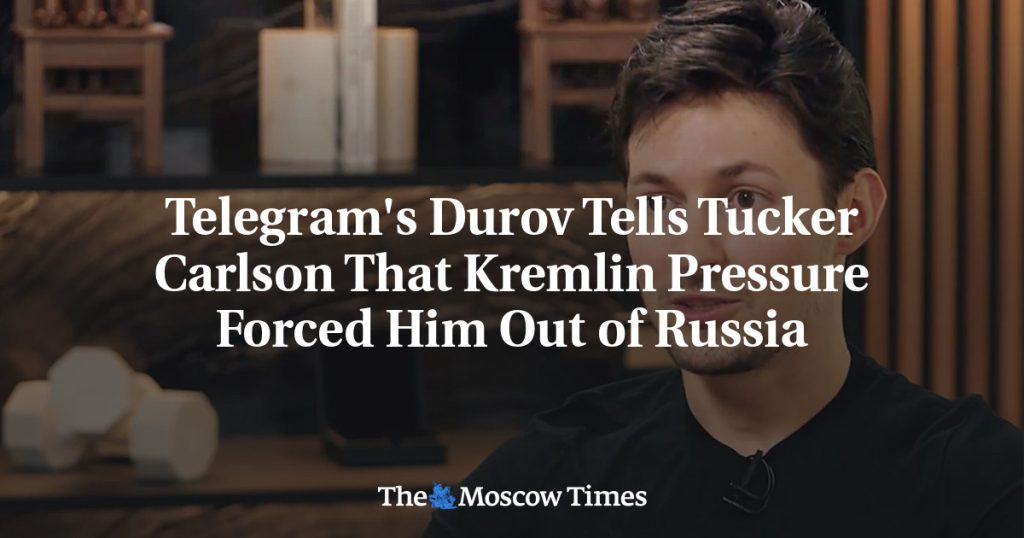In a rare interview with U.S. right-wing journalist Tucker Carlson, Telegram founder Pavel Durov revealed that he left Russia in 2013 due to Kremlin pressure to share personal data of Ukrainian pro-democracy protesters. Durov and Telegram relocated to Dubai in 2017 to avoid being politically aligned and taking sides in any political confrontations. Durov stated that he values freedom over following orders from anyone and refused to comply with Russian government requests that would compromise the privacy and security of his users.
During the mass protests in Russia in 2011-12 against election rigging, Durov stood up to state orders to remove opposition communities on VKontakte, the social network he co-founded in 2007. He faced a similar situation in 2013 during Ukraine’s Euromaidan protests, where he had to choose between compliance and resigning as CEO of VKontakte and fleeing Russia. Durov chose the latter option and made stops in various countries before settling in Dubai. VKontakte later fell under the control of Kremlin-aligned individuals, indicating the consequences of standing up to government demands.
Durov emphasized that Telegram is not controlled by the Russian state despite its influence in Russian-speaking countries. He suggested that rumors about Telegram being controlled by the Russian government were spread by Western competitors to hinder its growth. Durov also revealed that the FBI attempted to recruit one of Telegram’s developers to build a backdoor into the messenger during his recent visit to the United States. He expressed confidence that Telegram, which currently has 900 million active users, would reach 1 billion active monthly users within a year.
Notably, Telegram does not use end-to-end encryption by default, but it advertises itself as a secure communication tool. Carlson, known for his promotion of conspiracy theories and far-right views, interviewed Russian President Vladimir Putin in Moscow earlier in the year. The interview with Durov debuted the Telegram channel for Carlson’s Tucker Carlson Network, showcasing the platform for reaching a wider audience with varied perspectives. Durov’s decision to prioritize user privacy and security over government demands highlights the ongoing balance between freedom of expression and compliance with governmental regulations in the digital age.
You Might Like
© 2024 West Observer. All Rights Reserved.


